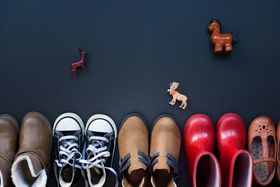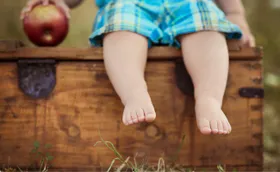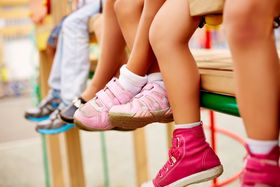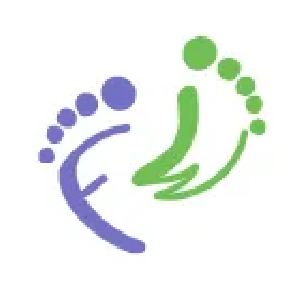Can Bowlegs Be Corrected in Children?
Explore the causes and cures for bowlegs in children.
Published August 14, 2023.
Discovering the reasons behind bowlegs in young children can be enlightening. Before you let anxiety take over, it's essential to understand that bowlegs in young children are not an uncommon occurrence. Many toddlers exhibit this curvature as a natural part of their developmental journey, and typically kids grow out of it by the age of 2. As they grow and start to walk, the weight-bearing and muscle development often help correct this natural bend.
For an in-depth understanding of interventions and common misconceptions, we talked with Leah Alexander, a paedriatician with 23 years of experience, who has cared for patients from infancy to young adulthood.
Understanding the Possible Causes of Bowlegs
- The Cozy Womb Effect: In the womb, your baby is snuggled up with limited space to stretch out. This position can lead to a temporary curvature in their legs, known as fetal moulding. As your kid starts taking their first steps, their legs often straighten out and adapt to their new walking adventures.
- Rickets: This refers to a softening and weakening of bones that can cause curvature. It's all about the bone not getting enough of these: calcium, vitamin D, and phosphorus. While rare, especially where nutrition is sufficient, some conditions might make absorbing these nutrients a bit challenging.
- Blount's Disease: With Blount's disease, one side of the leg bone grows faster than the other, causing that distinct bow. There's the infantile version, noticeable by age 3, and a later-onset type often linked to pre-teen growth spurts.
» Discover more about your baby's leg development
Treatments For Bowlegs
Think of regular doctor visits during your child's first 2 years as secret superhero training sessions. These check-ups are golden opportunities to ensure your child's little legs are developing correctly. Luckily, the majority of bowlegs cases under age 2 never need treatment.
But to help your child during treatment, should they need it, consider their comfort by looking at orthotics-friendly shoes they can wear. Let's look at some treatment options orthopaedists may suggest:
Leg Braces
Braces are a gentle nudge, guiding your child's legs back to straightness and restricting movement in a specific direction. If the curve remains, orthopaedists might suggest a more hands-on approach.
Physical Therapy
While physical therapy might not be the go-to for the most common bowleg types, it can be highly beneficial in some cases. It's all about strengthening and guiding the legs, ensuring they're ready for all the running, jumping, and playing your child will do. Shoes are an essential item that your child needs to stay active comfortably. Make sure they are wearing comfortable and appropriate shoes before they start playing.
Surgery
Undergoing surgery can be an incredibly daunting experience, requiring immense courage and strength. It's only considered when all other paths have been explored. Older kids might sometimes experience knee pain, which can be a sign of Blount's disease.
If weight loss and bracing don't do the trick, surgery might be recommended by your child's orthopaedist.
Tip: It's crucial to consult with an orthopedist to ensure your child receives the best care and guidance.
» Looking to help your baby walk? Learn about the best shoes for learning to walk
From Understanding to Action
Bowlegs in little ones are often a natural part of their growth journey, resulting from their fetal position. As they grow and take their first steps, their legs often straighten out. However, there are some complex causes, like nutritional deficiencies or growth plate irregularities, that might need attention. It's always a good idea to stay informed and consult with a paediatrician if you notice persistent curvature. With the right knowledge and shoes that fit, you'll be well-equipped to guide your child toward pain-free and comfortable leg movement during play and everyday activities.
Related Articles

10 Best Shoes for Pigeon-Toed Toddlers: Support and Comfort
Benjamin Aduwo
November 25, 2024

Gait Abnormalities in Children: Types, Causes and Treatment
First Walkers AUS
December 6, 2024

10 Important Child Feet Care Points Every Parent Should Know
First Walkers AUS
April 12, 2024

Feet Exercises for Flat Feet
First Walkers AUS
April 12, 2024

7 Fun Activities for Kids and Parents Bonding
First Walkers AUS
December 6, 2024
